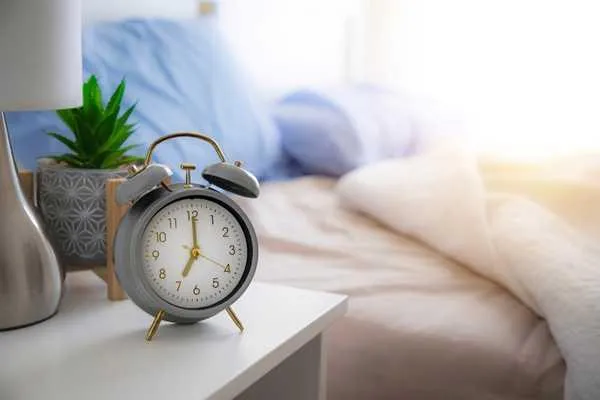

JANUARY-FEBRUARY ISSUE 2025
Financial Well-Being
Health & Fitness
Mind & Body
Relationships & Family
Current Articles

For Better Sleep, Stay out of Bed
It’s no secret that, for most of us, sleep is one of the most important factors in our quality of life. At one point or another, most people will experience some form of insomnia. This may be due to life stressors: school, babies, relationships, and careers. It may also be the result of our own less-than-ideal habits: screen time before bed, excess alcohol, sedentary lifestyles, and more. Medications can help us fall asleep, but most medicines have side effects. Additionally, medications might help us to fall asleep, but the sleep quality tends to be poor.
Often, our anxiety about sleep quality feeds on itself. If we are anxious about sleep, the ruminating thoughts keep us from sleeping, creating more anxiety about sleep, perpetuating the insomnia cycle. That’s why changing our mindset about sleep is the first-line treatment in sleep disorders. One method that is gaining popularity amongst sleep doctors is Sleep Restriction Therapy (SRT).
What is Sleep Restriction Therapy?
The name is somewhat confusing as its goal isn’t to restrict sleep but rather, to restrict time in bed awake. The more time spent in bed awake, the less overall sleep you’ll get. Sleep Restriction Therapy increases your sleep efficiency. Academic studies are piling up to show that SRT can be one of the most effective interventions in curing insomnia. The goal of this method is to sleep more than 90 percent of the time you’re in bed, thus reducing your anxiety about sleeplessness.
Sleep Restriction Therapy Method
Record your average sleep time. Every day for one to two weeks, record the time you spend in bed, and estimate the length of time you sleep.
If you’re in bed for nine hours but only sleep for six hours, your sleep efficiency is 67 percent.
If your sleep efficiency is less than 85 percent, proceed to the next step.
Wake up at the same time every morning. Set an alarm and wake up at that time no matter what. Then adjust your bedtime to your average sleep time.
If your average sleep time is six hours and you wake up at 7:00 a.m., set your bedtime to 1:00 a.m. This may seem counterintuitive, but trust the process.
Do not nap during the day, and keep a record of screen time, coffee, alcohol, and exercise. These all factor into your overall quality of sleep.
Keep this schedule for at least two weeks.
Continue your sleep diary to calculate sleep efficiency. As you limit your total time in bed, your sleep efficiency should start improving.
If your sleep efficiency is less than 85 percent and you don’t feel sleepy during the day, adjust your bedtime fifteen minutes later. So if you wake up at 7:00 a.m. and have been going to bed at 1:00 a.m., go to bed at 1:15 a.m. Only adjust your bedtime by fifteen minutes per week, and don’t stay in bed less than 5.5 hours, even if you’re not sleeping well.
If your sleep efficiency is greater than 85 percent and you are still sleepy, add fifteen minutes of sleep. So if you’re going to bed at 1:00 a.m. and waking up at 7:00 a.m., go to bed at 12:45 a.m.
Eventually, you should be able to increase your total sleep time to seven or eight hours. Improving your sleep efficiency improves your circadian rhythm and sleep architecture and should improve your overall quality of life. Of course, health factors, such as sleep apnea, need to be evaluated by a sleep specialist. But for most people with anxiety-related sleep disturbances, Sleep Restriction Therapy should make a huge difference.
Sweet dreams!










